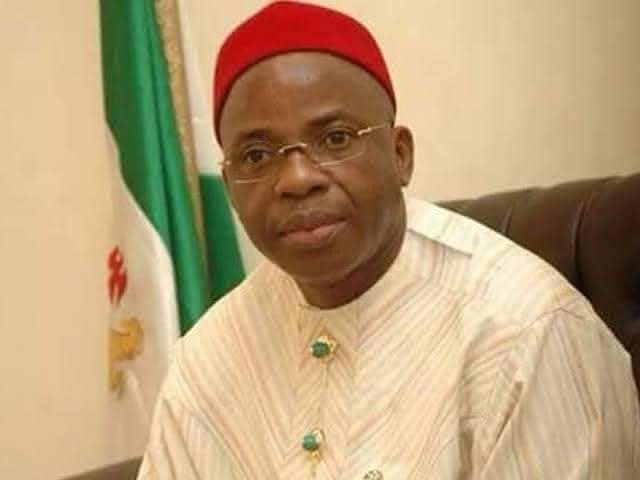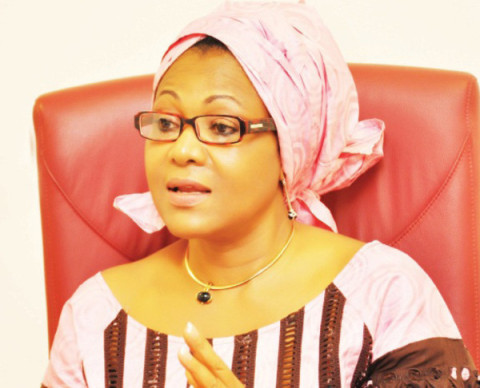By Capt Bishop Johnson (Rtd)
Vision is the lighthouse that illuminates the future, the torch that lights the path forward, empowering the committed and determined to see beyond the shadows and boldly “do more.”
Greatness becomes elusive when men lack vision, zeal, passion, and the courage to say, “we can do better.” Societies remain trapped in stagnation when people fail to dream beyond their present condition, to challenge the status quo, and to aspire toward what ought to be. Between where we are and where we ought to be lies a maze of expectations—these expectations define the contours of meaningful change.
Change can only be realized when expectations are clearly identified and the process for meeting them carefully articulated. This forms the operational core of true vision. The presence, content, and character of that vision—and the leader behind it—determine the quality of change possible.
Indeed, leadership quality is directly proportional to the depth and strength of the vision that propels the leader’s conviction and worldview. A government led by someone lacking vision is inevitably headed toward failure, unable to confront the challenges that transformation demands. Much of what is often perceived as a “leadership crisis” is, in truth, a crisis of vision.
The Ikedi Ohakim administration (2007–2011) had a vision—one that was transformational and demanded a radical shift in the approach to governance. It was famously called “Business Unusual.”
From inception, Governor Ikedi Ohakim recognized the shortcomings of the traditional, bureaucratic way of conducting government business—a style that had consistently failed to yield meaningful development. Despite having a widely acclaimed campaign manifesto that provided a roadmap for change, Ohakim took a bold extra step. He established a non-partisan Transition Committee made up of some of the finest minds in the state to critically review and enrich his development blueprint.
This was a remarkable demonstration of team spirit, humility, and inclusivity in decision-making.
The result was the birth of the New Face of Imo Agenda—a collective vision to transform Imo State into a modern, economically diversified, industrialized society anchored on science, technology, and job creation.
Yet, as with all real change, there was a price to pay.
Meaningful transformation requires disruption. It involves pulling people out of their comfort zones and inviting them to make sacrifices for a better future. Those unwilling to embrace change often form the first line of resistance—they become the casualties and cost-bearers of transformation. This resistance is the greatest test of any genuine vision.
Imo State, at the time, was economically stagnant, essentially a “civil service state” with minimal private sector engagement. Over 95% of government resources were consumed by bureaucratic overhead. This model consistently sentenced the state to economic regression and poverty.
The Ohakim administration set out to disrupt this model. The New Face of Imo Agenda was designed to correct this imbalance and position the private sector as a primary driver of economic growth.
To achieve this, critical infrastructure had to be rebuilt, urban systems had to be renewed, and the vision had to be communicated to the people. It was not about pursuing populist projects for applause—it was about laying a foundation for real, sustainable development.
The administration deliberately avoided cosmetic ventures. Instead, it focused on strategic projects with transformative value that could meet short – and long-term development goals within available resources.
Ohakim walked the talk.
The vision behind the development blueprint was tailor-made for Imo’s needs. The results on the ground were concrete, not abstract. And any claim to a “shortcut” or alternative path was mere shadow-boxing.
Indeed, the New Face of Imo Agenda remains a timeless and deliberate development paradigm—a vision informed by global best practices and designed to remake Imo State into a prosperous, functional, and modern society.
Though resistance was expected—especially from those who benefitted from the status quo or feared change—the logic, content, and moral foundation of Ohakim’s vision remain unassailable. As Martin Luther King Jr. once said:
“Human progress is neither automatic nor inevitable. Every step toward the goal of justice and development requires sacrifice, suffering, and struggle; the tireless exertions and passionate concern of dedicated individuals.”
The purpose of any rational public expenditure is to ensure that benefits, in real terms, justify the costs—especially in times of limited resources.
Today, Imo State, under the incumbent administration of Governor Hope Uzodinma, is combating head-on the infrastructure deficit estimated at over $20 billion,which Ohakim’s foresaw and confronted. Closing that gap demands more than rhetoric—it requires visionary and innovative political leadership. As Moeletsi Mbeki noted in Advocates for Change, transformational leaders must possess three key abilities:
The capacity for innovation
The skill to implement by mobilizing resources
The strength to create widespread buy-in
Even when momentary disconnects arise between leaders and the people—as happened with Nelson Mandela in South Africa—great leaders must stay the course. As Mandela wrote in Long Walk to Freedom:
“There are times when a leader must move out ahead of the flock, go off in a new direction, confident that he is leading his people the right way.”
Under Governor Ohakim, the Stakeholders Forum became a powerful tool for communication and consensus-building. People were regularly briefed on government programs, and transparency was institutionalized as a governing principle.
The Business Unusual philosophy was not just a slogan; it was a conscious, strategic framework for disrupting failure and birthing a new model of governance.
A February 24, 2008 editorial in ThisDay Newspaper captured the essence of Ohakim’s approach: “Ohakim’s administration is notable for the incubation of ideas and the exploration of opportunities beyond the boundaries of Imo State.”
Those who opposed the vision either benefitted from the dysfunctional past or were understandably—but wrongly—afraid of the new. Yet, true leadership requires boldness, foresight, and readiness to suffer misinterpretation in order to secure a better future.
The New Face of Imo remains a compass for progressive governance—a lighthouse guiding Imo towards a more prosperous, inclusive, and dynamic tomorrow.







